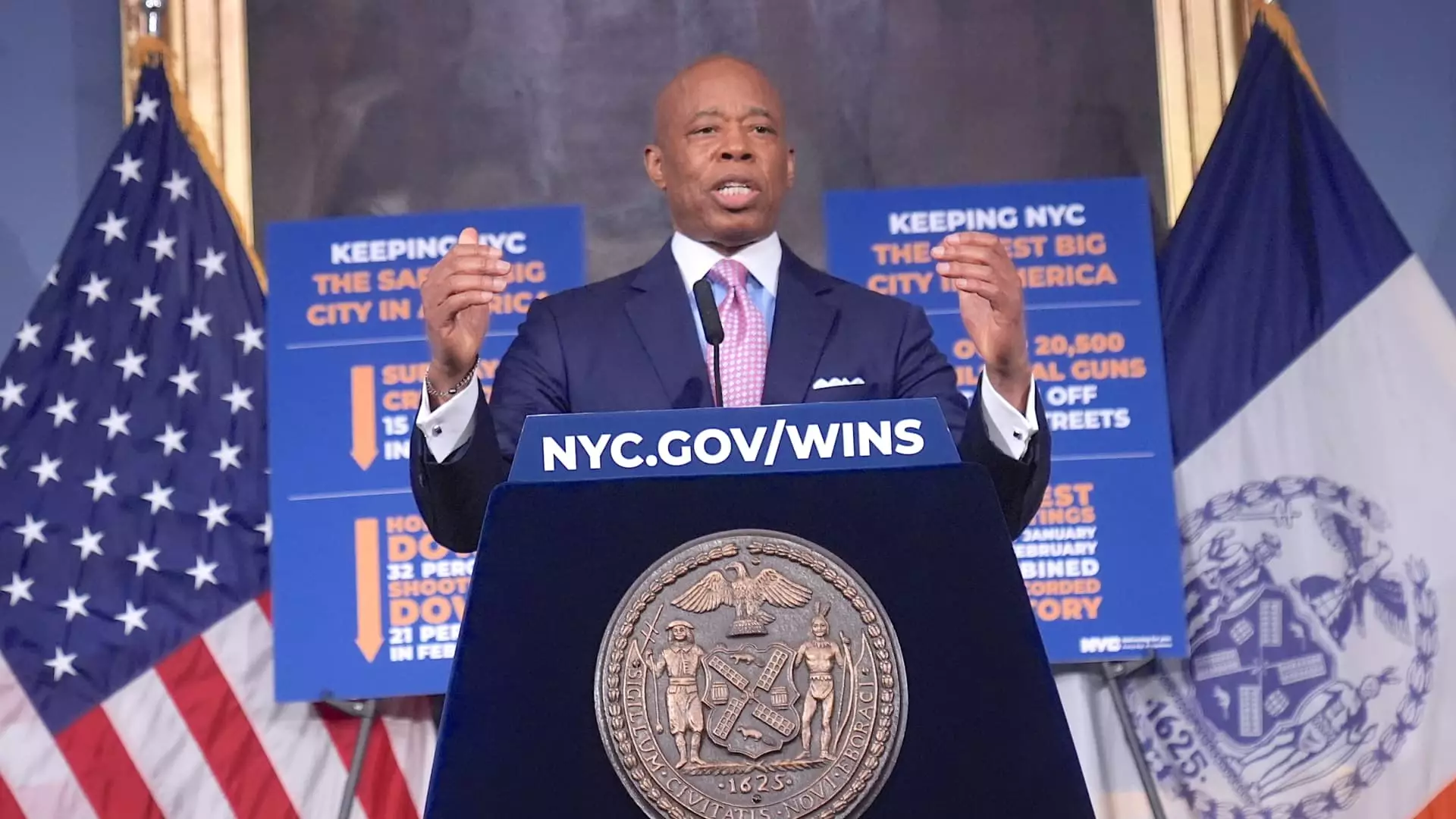In an audacious move that sent ripples through New York’s political arena, Mayor Eric Adams has declared his intention to run for reelection as an independent candidate, effectively opting out of the Democratic primary. This decision comes hot on the heels of the dismissal of corruption charges against him, a turn of events that he is leveraging to redefine his political identity. His declaration underscores an essential aspect of politics: the strategic maneuvering that often overshadows genuine public service.
Adams insists that his focus remains squarely on the needs of New Yorkers, framing his campaign as a call for “independent leadership that understands working people.” While this may resonate with some voters, one cannot overlook the implications of his departure from party lines. It begs the question: Is this a principled stand, or merely a tactical retreat from a faltering Democratic base? In a city rife with political polarization, his independent candidacy might secure him an appealing new guerrilla stance amidst the chaos of an impending Democratic primary.
Judicial Relief or Political Rebirth?
The timing of Adams’ announcement is telling. The federal judge’s dismissal of corruption charges, which accused him of accepting lavish gifts from Turkish nationals during his tenure in public office, feels almost too perfect. He describes himself as a “racehorse that has been held back,” implying that his political aspirations have been unjustly stifled. However, can we overlook the fact that only after clearing his name does he feel “uninhibited” enough to mount a serious campaign?
The ruling by U.S. District Judge Dale Ho stressed the necessity of distancing the legal charges from the political landscape to preserve the city’s governance. While this may have been a necessary judicial move, it also conveniently provided Adams with the respite he required to pivot towards an independent campaign. His assertion that the federal indictment was a hindrance to his governance raises eyebrows—were these charges simply a nuisance, or did they merit a deeper moral introspection? His nonchalant dismissal of responsibility, stating that he “trusted people that should not have,” seems to reflect a disconcerting lack of accountability.
The Quest for a Solid Base
Adams paints a picture of himself as a man evolving beyond his previous affiliations, aiming to appeal to a broader base. In his announcement, he emphasizes a need for grassroots support, emphasizing connections beyond Manhattan. Herein lies a paradox; though he claims to be distancing himself from the Democratic primary, he is still a product of that very system. His rhetoric suggests wanting to be a champion for all New Yorkers, yet how can he reconcile this with the fractures within the Democratic Party he is so quick to exit?
His foray into independence might attract moderate voters disillusioned with party politics, but it also raises skepticism among those who remain loyal to traditional Democratic ideals. In a political landscape where centrist ideology is increasingly challenged by both extreme left and right factions, Adams may find himself at a crossroads, desperately trying to balance his own political allegiances with the expectations of an increasingly volatile electorate.
Political Posturing in a Chaotic Landscape
The current Democratic landscape is flooded with competition, with notable figures like former Governor Andrew Cuomo vying for attention. Adams’ challenge lies not just in promoting his track record against the backdrop of a crowded field but also in navigating the emotional scars inflicted by previous corruption allegations. His assertion of humility in “putting his record up against any of these other candidates” reads as both bold and desperate—a political tactic seeking to differentiate him in an arena buzzing with contenders.
As he promotes an image of an outsider willing to break free from traditional party politics, one can only ponder how sustainable this façade will be when scrutinized by an electorate craving authenticity. In his newfound independence, will he hold steadfast to the progressive ideals championed by the Democratic Party, or will he drift towards the centrism that many moderates seem to clamor for in today’s political ecosystem?
Ultimately, while the narrative spun by Adams seeks to forge a new path, it still stumbles over the remnants of a political system fraught with challenges. As he embarks on his campaign, only time will reveal whether this pivot to independence is a noble reclamation of political agency or just another chapter in a narrative dictated by circumstance over conviction. The road ahead is fraught with potential pitfalls, and the voters of New York City will be watching closely.

Leave a Reply